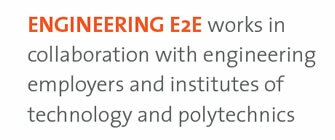INDUSTRY/EDUCATION LINKS CASE STUDY
Final year project opens doors for BEngTech graduate

'Les Poynter’s award-winning robot project for his Bachelor of Engineering Technology (BEngTech) degree has opened up a lot of doors. He’s now enjoying his role as electrical engineer in a consultancy company, and is busy creating another two models of the robot in response to demand. We talked to Les about how he got here.'
Choosing a qualification
Les (of Ngati Porou, Samoan and European ancestry) is enthusiastic about the advantages of his qualification, saying that although the effort involved forhis final-year project was “painful” it has opened up lot of doors for him. It was the more practical coursework which led him to study towards a BEngTech rather than a Bachelor of Engineering (BE) (Honours). “You’re told to do the BE because it’s more recognised, but I’ve found that the BEngTech is just as recognised and you get that practical side that the BE doesn’t offer.”
It isn’t easy starting a BEngTech without the prerequisite credits in Maths and Physics, “I dropped Maths after Year 9 and didn’t take any Physics”. Instead of doing a bridging course, however, Les was accepted into the AUT BEngTech (Electrical and Electronic Engineering) course on the strength of the NZQA credits he gained in starting an electrical apprenticeship.
“I fell in love with the BEngTech from Day One and worked hard. I just enjoyed so many aspects… One of the great things is the lecturers. If you have a passion for it, the lecturers will stay behind and help you understand everything.”
“You should make a real R2D2”
 For most children, getting a real robot is unlikely. As his seven-year-old daughter Ela-Huia had spent months in the Star Ship Children’s Hospital, surrounded by posters of robots and Star Wars characters, she suggested building a real R2D2 (as seen in the Star Wars films). Les took on the challenge of developing a robot for his BEngTech project.
For most children, getting a real robot is unlikely. As his seven-year-old daughter Ela-Huia had spent months in the Star Ship Children’s Hospital, surrounded by posters of robots and Star Wars characters, she suggested building a real R2D2 (as seen in the Star Wars films). Les took on the challenge of developing a robot for his BEngTech project.
During the project he was supervised by Dr John Collins, who helped with the structuring of the software. He also received help from Makirai Henry and Bill Longstaff, mechanical technicians in the School of Engineering. City Rewinds Ltd, an electric motor sales and repair company, also provided support by allowing Les 24-hour access to their workshops.
The final outcome, says David Nutt, Programme Leader – Department of Electrical Engineering, was “a beautifully finished robot that is both a technical and artistic success. The range of skills required to do this are of a very high standard.” In addition to delighting his two children, Les went on to win the 2014 GT Murray Memorial Award for the best presentation of an engineering design project by an IPENZ Student Member.
Although offered a large sum of money for the robot, Les decided to donate it to Star Ship Children’s Hospital, where it will be used to cheer up patients by “talking” to them and offering them drinks. He has since been approached by others requesting a robot and is currently making another two models in his spare time. With a new Star Wars film coming out, Les says he might be inspired to develop other types of robots from the series.
BEngTech an advantage in the job market

 Les is now employed by McMahon Engineering Ltd. He travels to geothermal and hydro power stations around New Zealand doing design work and working on electrical engineering projects. The advantage of working for a smaller company, he says, is that he gets to do a wide range of tasks. “I do designing, pricing, consulting… Everything.”
Les is now employed by McMahon Engineering Ltd. He travels to geothermal and hydro power stations around New Zealand doing design work and working on electrical engineering projects. The advantage of working for a smaller company, he says, is that he gets to do a wide range of tasks. “I do designing, pricing, consulting… Everything.”
He encourages anybody considering doing a BEngTech to take the opportunity. “If you have a passion for building or how things work, definitely do it. As long as you can think practically about how something works, engineering is for you. It’s worth the three years of pain and the late nights working on assignments. It definitely works out and I have no regrets.”
Les adds that a lot of engineering companies in Auckland look for BEngTech graduates, and that they’re sometimes getting jobs over BE graduates. “Simply because the BE is great for research, but the BEngTech is better for the practical side of things. Employers love an engineer who thinks from a practical viewpoint. I would definitely recommend the AUT BEngTech to any school leaver.”
Career progression
At the moment, Les says, he is just really enjoying his work at McMahon. “I would like to get as much experience with them as possible and in three to five years become a Chartered Design Engineer. One day I’d like to go out on my own, and maybe I’ll look at doing a Masters later on.”
Watch Les’ almost-completed R2D2 in action! here
Our thanks to Les for his time and advice. If you have any questions or comments, please get in touch:
February 2015
 |
 |
 |
||
 |
||||
 |
||||
 |






